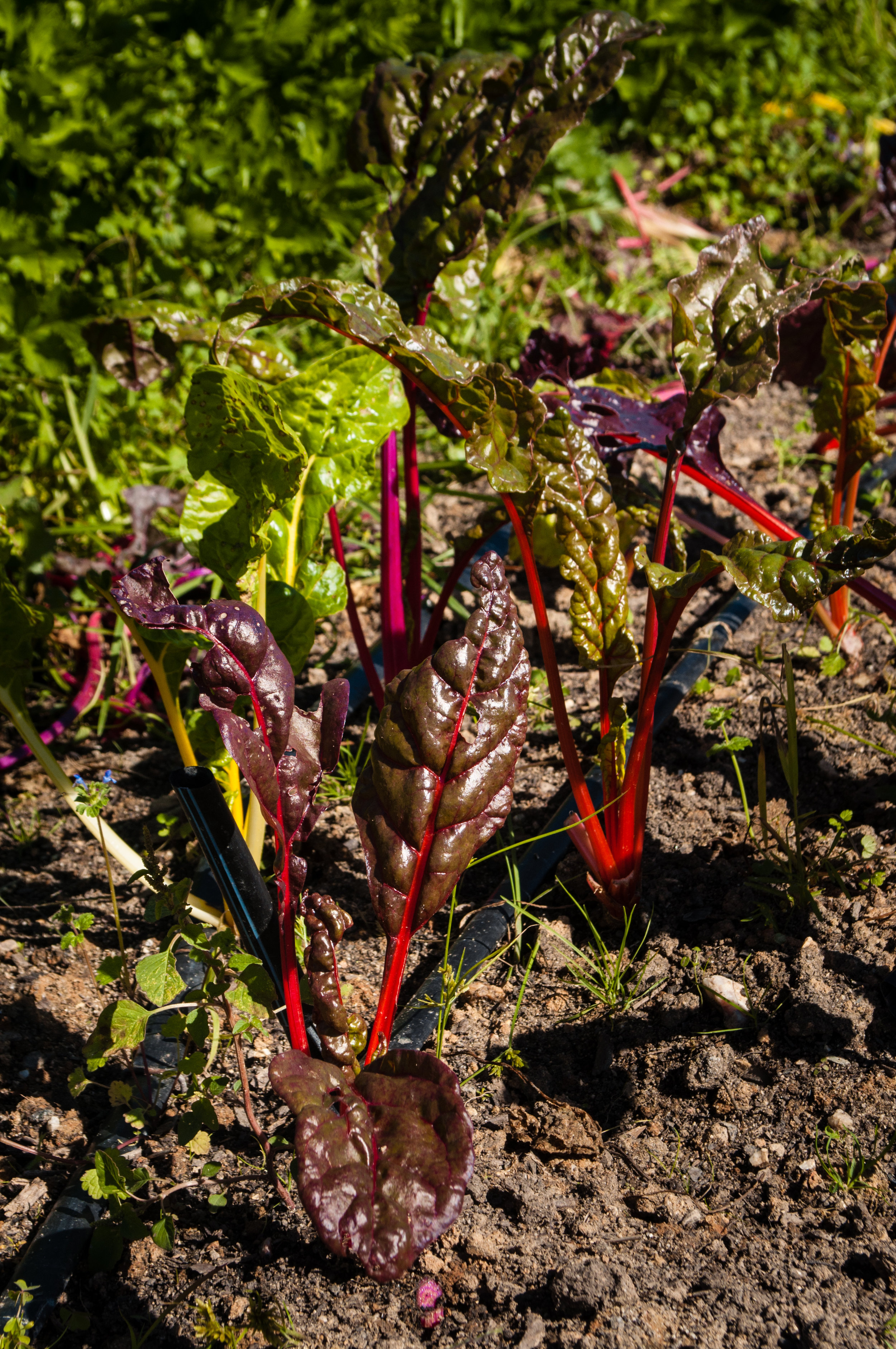Cooking with the Duke Campus Farm

Eggplant Caviar Recipe:
Dice the eggplant and place them into a bowl with salt.
Knead the eggplants with your fingers to release its oils.
Sautée the garlic, eggplant, salt, and olive oil until the eggplant is golden brown.
Place the mixed ingredients in a blender and pulse until smooth. Optional: add cilantro.
Enjoy the finished dip with freshly baked bread.
Root Vegetable Salad Recipe:
Peel and cut kohl rabi into matchsticks. Sautée with olive oil.
Peel the baby carrots and sautée with the kohl rabi until tender.
Cut fennel into thick slices. Grill with fresh butter in a pan until brown and caramelized.
Slice the radishes.
Place all the vegetables into a bowl and add fresh mustard greens with goat cheese.
Within an hour we had a full meal, which only traveled a few miles from farm to plate. Thanks to the Duke Campus Farm and part-time farm intern, part-time gastronomy enthusiast, Emma Lietz Bilecky, we got the rundown on how the Campus Farm functions.
Bilecky gracefully navigated the kitchen in her apron, making spontaneous decisions and throwing in ingredients here and there. Her gastronomy-focused Instagram account (@Interpretive_Eats) focuses on low-cost, vegetarian-friendly, whole-food cooking.
Three full-time staff and an 11-member student crew oversee the management and educational programming at the Duke Campus Farm. Additionally, hundreds of volunteers help maintain the farm at weekly community workdays. Settled on the outskirts of the Duke Forest, the sprawling fields covered in dew and smelling of rich soil, grow varieties of produce, flowers, and herbs. At the farm, one can find endless rows of leafy kale and shiny aubergine eggplants, swaying slightly on their vines. A few tall stalks of sunflowers curl under the sun.
The farm is supported by Duke University and serves a few Duke Dining facilities, including Farmstead in the Brodhead Center. By avoiding pesticides or other harmful chemicals, the farm also aims to grow their produce in the most sustainable way possible.
The Duke Farm offers a Community Supported Agriculture (CSA) package, which essentially means that customers buy into a “share” of the farm’s produce in advance of harvesting. This provides the farm with early season capital to offset high initial overhead costs. The package also guarantees a customer base after the harvest, regardless of the bountifulness of the season. The result is fresh produce, only hours old, delivered to customers every week. The general goal is to connect farmer and customer, creating a tighter-knit community centered around sustainably grown, organic food.
Collaborating with the Duke Campus Farm, we learned how easy it is to take small steps towards eating more consciously-- whether that’s supporting local farmers at farmers' markets, eating organic foods, or embracing Meatless Mondays.








